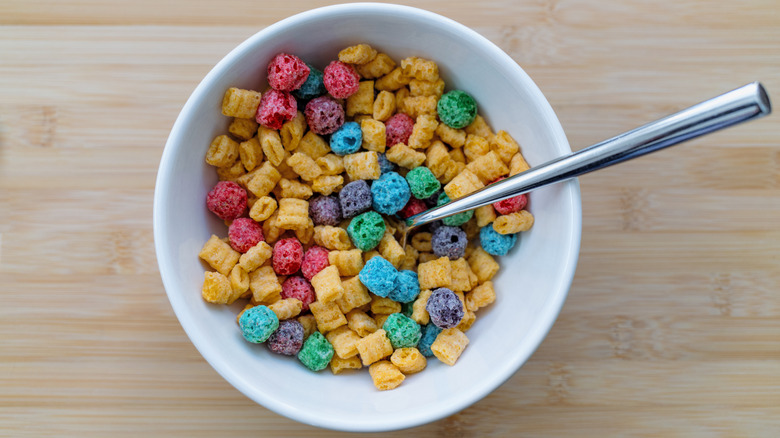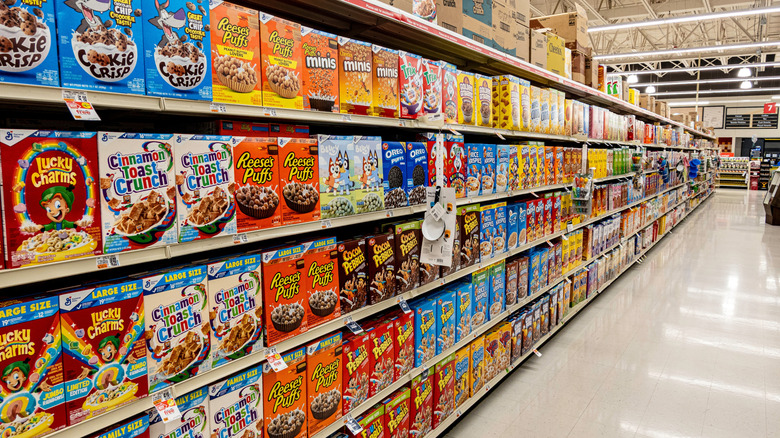Why American Breakfast Is So Sweet
If you've grown up in the United States, breakfast is sweet — extremely, literally sweet. Your breakfast cereal is filled to bursting with sugar, be it Frosted Flakes, Cap'n Crunch, or Apple Jacks. All three of those, and plenty more, list sugar as their second ingredient. In the 19th century, breakfast was a hearty meal with savory foods like steak, eggs, and bacon. Those are all still around, but what changed in the U.S. that suddenly made all these savory breakfasts play second fiddle to a bowl of sweetened corn cereal and milk?
The answer is the rise of the modern American advertising industry. Early cereal ads focused on how the food was easy to prepare, tasty, and good for you. Kellogg's, which initially went into business as the Battle Creek Toasted Corn Flake Company, started selling cornflakes in 1906, and the company tried something that revolutionized American life: marketing directly to kids, who would then bother their parents to spend money. Kellogg's began creating colorful mascots and offering toys and picture books as rewards for buying cereal boxes, both of which were immensely successful. The rest is history, and also likely part of your childhood.
Selling sugar to American kids
The history of Corn Flakes is even worse than you knew, starting with an eccentric founder named Dr. John Harvey Kellogg, who ran a fairly strict sanitarium and encouraged healthy, chaste living. It's a widely shared tale that he began recommending bland corn flakes as part of a diet to reduce sexual impulses, but it was his brother — Will Kellogg — who had the idea to sell the flakes. To do that, he needed these cornflakes to taste good, and so he began adding sugar. This is when Kellogg's original baked flakes of corn actually got some flavor, and when the big marketing boom began.
The low-carb diet fads of the 1970s, popularized by Dr. Robert Atkins, posed some threat to American cereal, and much later we gradually came to understand that sugar isn't so healthy either, although we seem to have collectively decided that doesn't bother us anymore. Modern breakfast cereal remains high in sugar, and while there are more "healthy" cereals that range from good to bad, the big players still taste extremely sweet. Cereal marketing gimmicks still exist, too, and some Kellogg's marketing gimmicks even make a good point. But the fact that we eat so much cereal is a testament to the power of ads in American life.

